All countries have their social problems, some more than others. Social issues such as income inequality, declining birthrates and an aging population are some of the problems facing the Japanese. Today we are going to look at 30 social problems faced in Japan.
1 - Poverty in Japan
I believe that many people think that poverty is just a problem in developing countries, but poverty has become a social problem in Japan as well.
According to a survey by the Ministry of Health, Labor and Welfare, about 16% of Japanese, 1 in 7 Japanese, earn less than 120,000 yen monthly, considered to be low-income poor.
In particular, more than half of single mothers are relatively poor, which has become a serious social problem in Japan in recent years.
In addition, the relative poverty of the elderly is also a major social problem, when being over 70 years old, about 26%, that is, more than a quarter of the population, falls into relative poverty. There are reports of elderly Japanese people who committed crimes to be arrested and support themselves.
We also recommend reading:
- Poverty in Japan - Are there poor Japanese?
- The Invisible Homeless People in Japan
- Kamagasaki – All about Japan's Biggest Favela
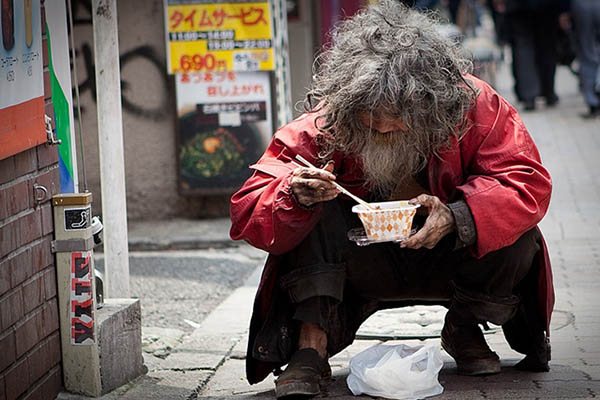
2 - Birth rate and population aging
“Low birth rates and population aging” refers to a low proportion of children and a high proportion of the elderly population.
A Japan birth rate is declining for a variety of reasons, including late marriages, women entering the workforce, and lower levels of education.
In addition, population aging is also increasing due to advances in medicine and increased health awareness.
The background to the problem of declining birth rates and an aging population is that a decline in the workforce can lead to social problems such as the failure of pensions and health care systems, which will be discussed later.
In addition to these systems, this situation can also evolve into a number of other social problems, such as a shortage of workers that causes economic decline in Japan.
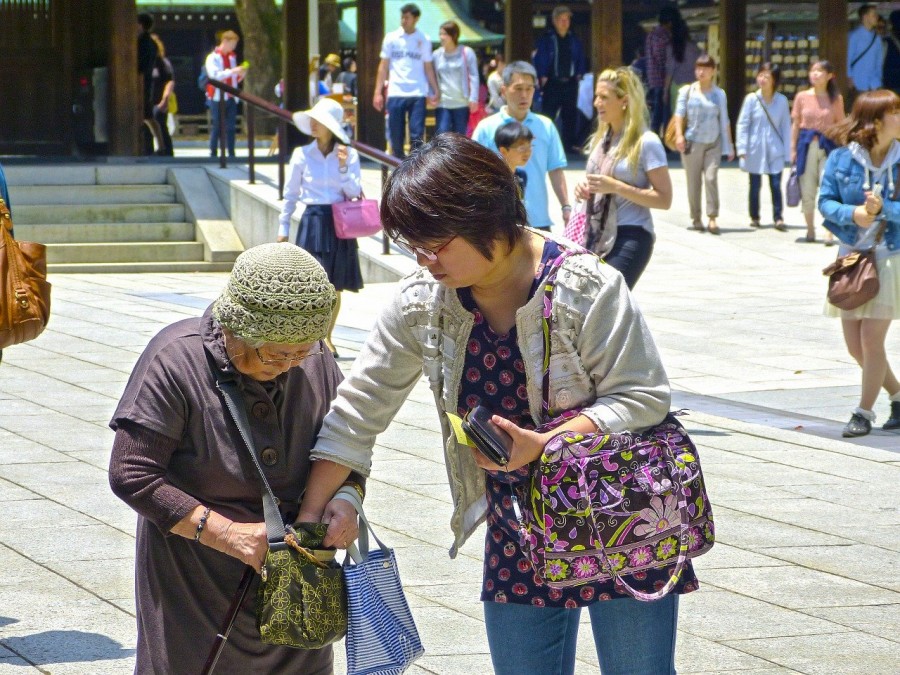
3 - Japanese Population in Decline
As a result of the low birth rate in Japan, more people die than are born.
Japan's population peaked at 128.08 million in 2008, but has already started to decline and is now considered a social problem. Research shows that by 2053 the population of Japan will drop to 100 million skilled workers.
A declining population is said to lead to a contracting economy and lower rates of economic growth as consumption will decline. In addition, if the population decreases, it can cause not only economic collapse, but also in the area of education and health.
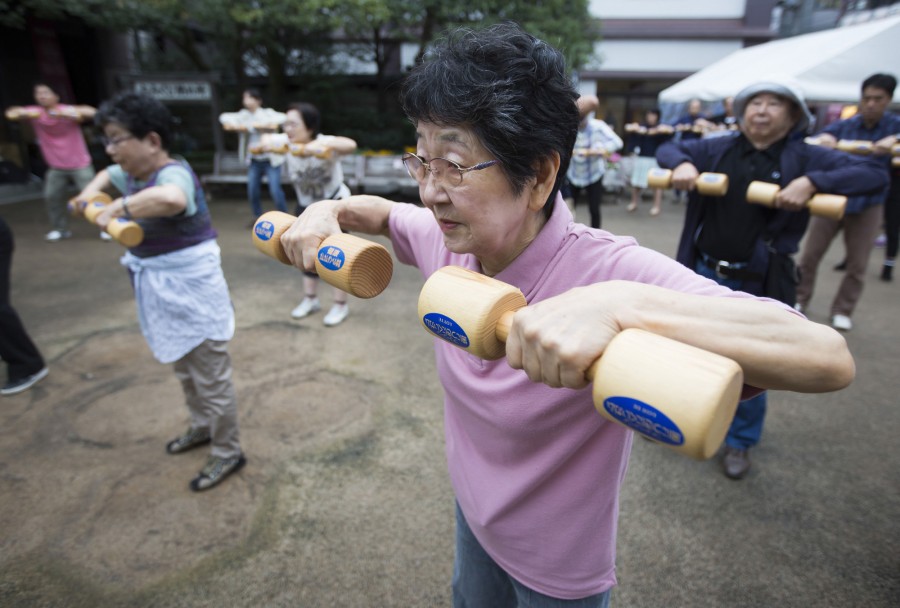
The article is still halfway through, but we recommend also reading:
4 - Collapse in Retirement
A pension is received when a person reaches a certain age. Currently, people can receive pensions after age 65, but this pension system is expected to collapse and become a social problem in the future.
The pension system is based on contributions collected from the current working age population (known as the working age population) and paid out as pensions to those entitled to pensions.
Currently, three working-age people support one retiree, but if the decline in birth rates and population aging continues, there will be two working-age people supporting one retiree, and that could decrease to one person and create a collapse in the pension system. .
5 - Harassment
Bullying, power harassment and sexual harassment has long been a social problem in Japan, reported in newspapers and on TV, but even now that it has become a social problem, it still happens a lot.
Simply put, harassment is “harassment” that causes serious harm to another person, whether the harasser realizes it or not, it can be physical or verbal. These different types of harassment can happen at work, in schools, in the maternity ward and even with pregnant women.
- All about chikan, sexual harassment in Japan
- Is Japan Safe for Women?
- Ijime - Bullyng in schools in Japan

6 - Suicide in Japan
Suicide in Japan is a very old problem that has been solved over the years. Every year the suicide rate has been dropping, but it is still a big social problem in Japan that affects many young people and even children.
Even in 2021, more than 20,000 Japanese people commit suicide a year, so it's not a small number. In addition, according to the World Health Organization (WHO), the number of suicides in Japan is 18th among 172 countries, so it is still recognized as a serious social problem.
We recommend reading the following articles:
- How did Japan end half of suicides?
- The truth about suicides in Japan
- September 1, the day with the highest suicide rate among Japanese teenagers

7 - Elderly care in Japan
According to a survey by the Ministry of Health, Labor and Welfare, as of 2016, 51.2% of home care are provided by caregivers of the elderly.
Children are increasingly abandoning their parents and leaving them in the hands of others. Some do not even leave caregivers with their parents or grandparents, thus causing accidents, fires and even deaths.
There is a lot of demand in Japan with elderly care, in addition to nursing homes, Japan even has day care centers to take care of the elderly.

8 - LGBT in Japan
As much as Japan in its history supports homosexuality, and its religion does not prohibit this practice, there is still a certain prejudice in some places regarding LGBTQI+.
Human rights violations and discrimination, such as being refused employment simply because of being LGBT, being bullied or raped at work, or at school, has become a social problem in Japan.
It is said that there are seven or eight LGBT people out of every 100 people in the world, which means that based on the total population of Japan, approximately 10 million people are considered LGBT.
Discrimination against LGBT people is a social problem in Japan, but it is also a global social problem, with some countries punishing people for simply saying they are gay.

9 - Children waiting for kindergartens in Japan
Despite the low birth rate in Japan, as both parents tend to work, the demand for full-time day care is quite high, leaving many children in the queues.
It is said that there are now around 20,000 children waiting for admission in Japan, but the number could exceed 70,000 if you count those who are not in line waiting to enter a school.
As mentioned, the problem is not just infrastructure to welcome children, but mothers in the job market, concentration of population in urban areas and others.
10 - Food self-sufficiency in Japan
Self-sufficiency refers to the consumption of food produced in Japan. We know that because Japan is a small island, most of the food is imported from abroad.
Only 38% of the food consumed is produced in Japan, leaving the country with 62% dependent on imports from abroad. This social problem can cause food shortages and high prices for certain products.
- Prices of fruits and vegetables in the Japanese market
- Do Japanese eat little? Is the food expensive?
11 - Food loss and waste in Japan
Food loss is a social problem where edible food is discarded without being consumed. In Japan more than twice as much food is wasted compared to the UN suggestion.
Food losses are also generated during production and processing, but many foods that are approaching their expiration date or that have reached the end of their shelf life are also thrown away from points of sale.
The population is also responsible for wasting food when cooking or ordering a dish that is bigger than the stomach. The sale price can also cause waste.
13 - Shoplifting in Japan
Although Japan is a relatively safe and honest country, thefts still happen in the country. In fact, Japan is one of the countries with the highest number of shoplifting.
These petty thefts result in an annual loss of more than 45 billion yen (about US$350 million). At least robberies and robberies are super rare, most thefts happen on the sly.
14 - Gender inequality
In Japan in 1986, an Equal Employment Opportunity Act was enacted, but even so, 30 years later, there is gender pay inequality in the Japanese labor market. Japan is ranked 110th in the social equality rankings of 149 countries.
The average male salary in Japan is 335,000 yen, while the female one is just 246,000 yen. Furthermore, 48% of Japanese companies do not have women in high positions as managers. There is great gender inequality in Japan.

15 - Debts of Japan
Japan has a huge debt, more than 1.1 quadrillion yen, or 8.3 trillion dollars, more than twice the size of its economy.
The COVID pandemic has also further worsened the situation, causing the yen to depreciate further.
What differentiates Japanese debt from that of other countries is the high level of household savings, ensuring deposits in the system, where all bonds are in the hands of local creditors, mainly national banks.
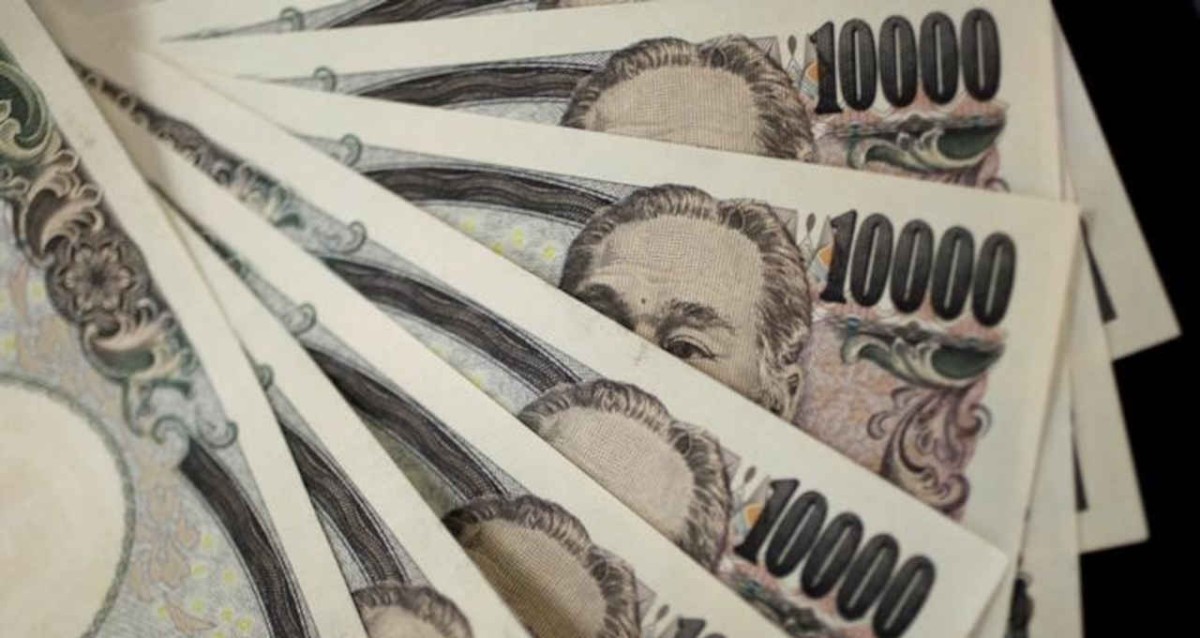
16 - Empty cities and abandoned houses
Although some people think Japan is a country without space where people live in cubicles, the reality is different, many houses are empty, and some cities are getting abandoned. All because young people want to focus on big cities.
1 in 10 houses in Japan are abandoned, empty, without a single inhabitant. It is estimated that Japan has more than 8 million abandoned houses out of 60 million.
Empty houses cause problems for neighbors due to decay, animals and insects, as well as crimes such as illegal occupation and arson.
Many cities have the potential to disappear in the coming decades. Not just remote locations like Hokkaido, but even prefectures like Tokyo. Many cities are paying people to live there.
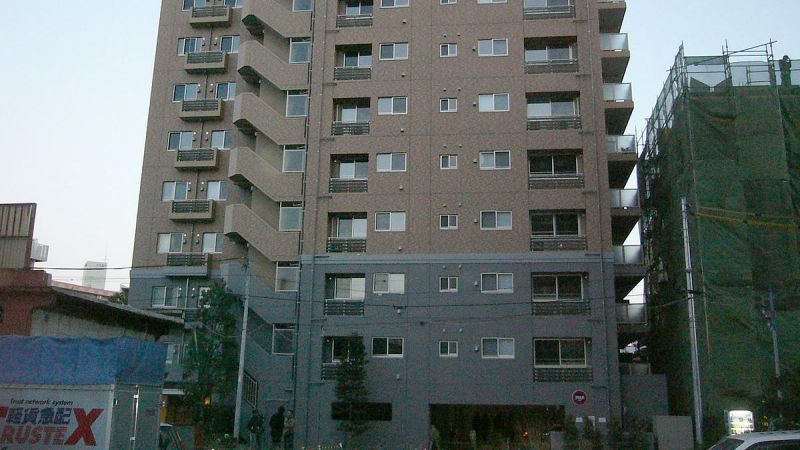
17 - Worker Shortage in Japan
Labor shortages have already become a social problem, particularly in some industries such as the restaurant industry and the construction industry.
That's why Japan is so in need of foreign labor. In Japan, there are a lot of jobs for few people. Unfortunately, certain areas also require too many requirements to employ.
Shortage of Doctors in Japan
Health care in Japan has never been top notch, as much as hospitals are perfect and organized, some doctors are heavily criticized for misdiagnosis or neglect.
Lack of Successors
The shortage of successors has turned into a social problem due to the declining birth rate, but there are also many who say they don't want their children and grandchildren to inherit their debts.
Furthermore, if the number of successors of farmers and fishermen decreases, this can directly lead to social problems such as food self-sufficiency.

Other Social Problems in Japan
If we approach each social problem in detail, it will take forever. Finally, let's leave other social problems in Japan in a list below:
- Abnormal Weather;
- Volcanoes and Earthquakes;
- Microplastics;
- Elderly drivers;
- Contamination by foreign matter;
- Infrastructure aging;
- Black companies;
- Leakage of personal information;
- Disguise in food;
- Frauds and embezzlers;
- Hikikomori;
- Rent inequality;






